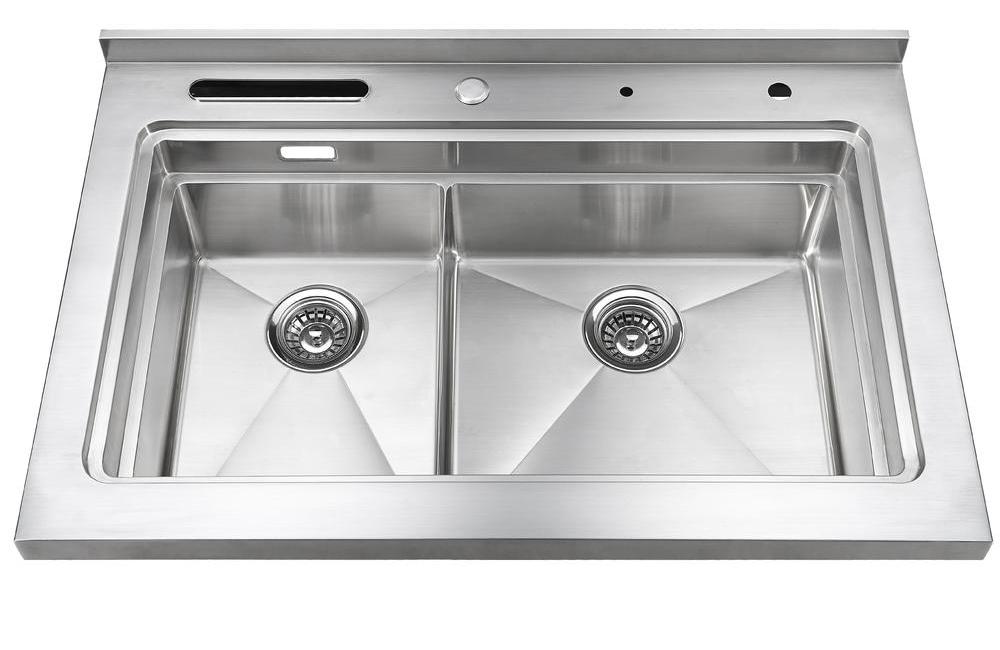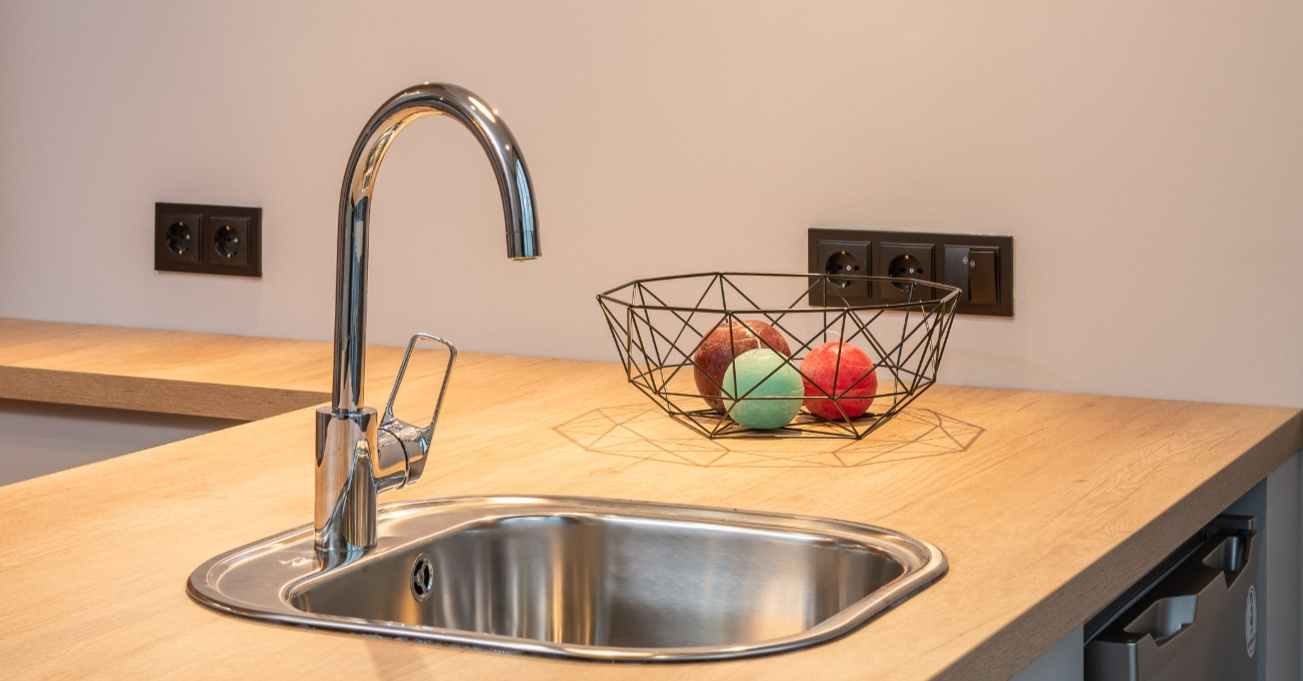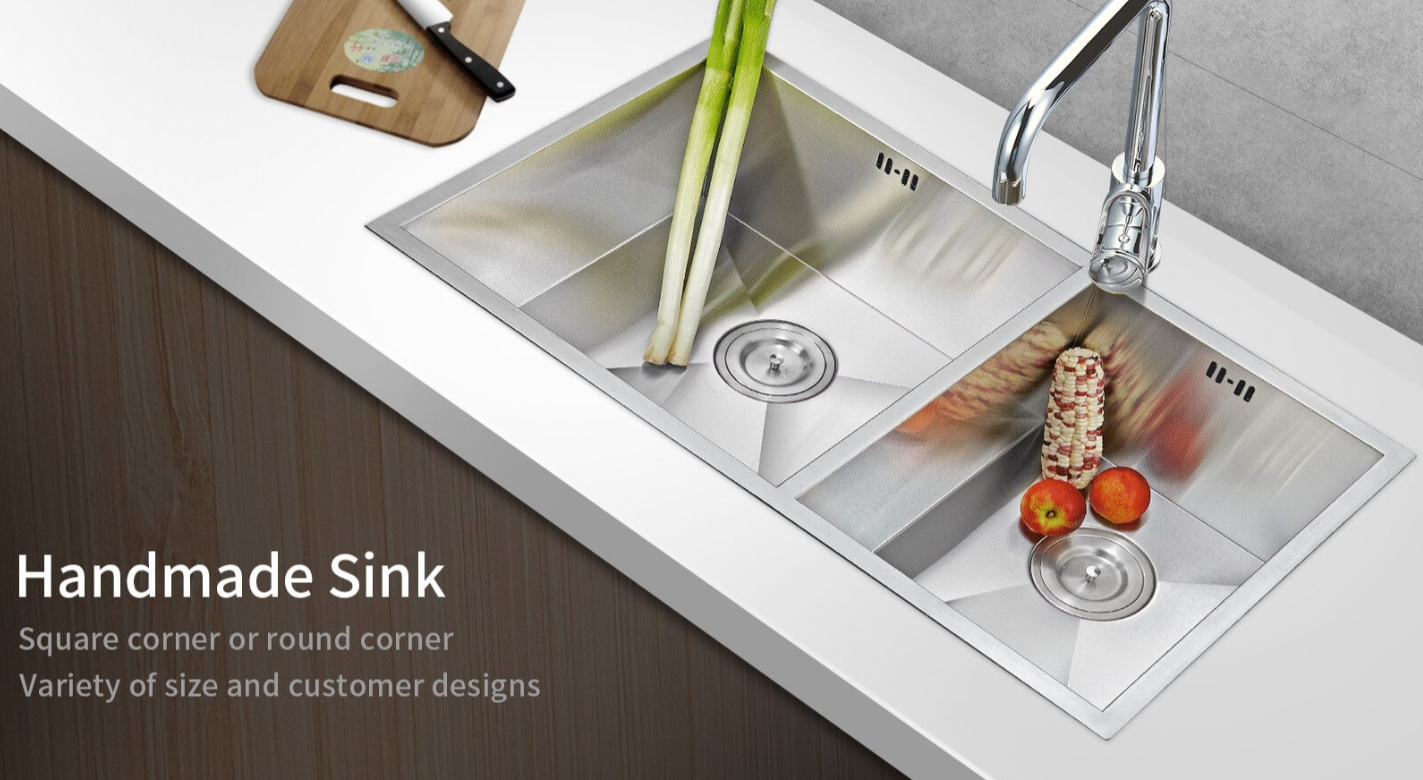
Maintenance Tips: Keeping Your Kitchen Sink Clean and Clog-Free
The kitchen sink serves as the heart of your culinary space, handling everything from dirty dishes to food preparation. However, this essential fixture often endures a significant amount of wear and tear, leading to clogs, foul odors, and potential hygiene issues. To maintain a clean and clog-free kitchen sink, implementing proper care and regular maintenance practices is paramount.

Here are some effective maintenance tips to ensure your kitchen sink remains clean, fresh, and fully functional:
Inspect the seals around the sink and the caulking where it meets the countertop. Reseal any areas showing signs of wear or damage to prevent water seepage, which can lead to mold growth and damage to surrounding surfaces.
Frequent cleaning is key to preventing the buildup of food particles, grease, and soap scum. After each use, rinse the sink thoroughly to remove any debris. A simple solution of dish soap and warm water can be used to wipe down the sink's surfaces and faucet. Avoid abrasive cleaners that may damage the sink's finish.
Dispose of food scraps properly to avoid clogs. Use a sink strainer or stopper to catch solid particles, preventing them from entering the drain. Avoid pouring grease or oils down the sink, as they can solidify and cause blockages. Instead, collect grease in a separate container and dispose of it in the trash.
If your kitchen sink has a garbage disposal unit, keep it in good working condition by running cold water while using it and avoiding overloading it with large amounts of food at once. Periodically, grind ice cubes or citrus peels to clean the disposal and eliminate odors.
Once a month, give your sink a thorough deep clean. Use a mixture of baking soda and vinegar to scrub the sink basin and drains. This natural solution helps break down grease and grime while eliminating odors.
Run hot water through the sink after each use to help prevent grease buildup. Hot water can dissolve grease and move it further down the drain, reducing the chances of blockages.
To combat persistent odors in your sink, consider dropping a few citrus peels or using specialized sink deodorizers. Alternatively, a solution of diluted bleach (one part bleach to ten parts water) can be poured down the drain to eliminate foul smells. Remember to flush the drain thoroughly with water afterward.
Chemical drain cleaners may seem like a quick fix for clogs, but they can be harsh on your pipes and harmful to the environment. Opt for safer alternatives such as a plunger or a plumbing snake to clear minor clogs.
In case of a clog, use a plunger or a plumbing snake to clear it. Place the plunger over the drain and pump it up and down several times to dislodge the blockage. For stubborn clogs, a plumbing snake can be inserted into the drain to remove the obstruction. For stubborn blockages, consider contacting a professional plumber.
Inspect the sink and its components regularly for leaks, loose fittings, or damaged parts. Addressing minor issues promptly can prevent more significant problems later on. Check the pipes under the sink for any signs of leaks and tighten connections if needed.
If your kitchen sink fixtures are outdated or showing signs of wear, consider upgrading to more modern and efficient models. Newer faucets often come with features like detachable sprayers or touchless activation, making cleaning and maintenance easier.
Consider scheduling professional maintenance for your sink at least once a year. A plumber can inspect the pipes, identify potential issues, and perform a thorough cleaning to prevent major clogs.

Let's continue by adding some frequently asked questions (FAQs) and their answers to provide more comprehensive information about kitchen sink maintenance:
Ideally, you should clean your kitchen sink daily after each use. A quick rinse and wipe-down with soap and water can prevent the buildup of grime and bacteria. However, a deep clean using natural cleaners like baking soda and vinegar should be done at least once a week to maintain optimal cleanliness.
Avoid using abrasive materials like steel wool or harsh scouring pads when cleaning your sink, as they can scratch the surface. Instead, use soft sponges or cloths along with gentle cleaners to maintain the sink's finish.
While citrus fruits like lemons can be used to freshen and deodorize your sink, avoid leaving acidic substances in prolonged contact with certain sink materials like marble or granite, as they can cause damage. Stick to mild and non-abrasive cleaners for regular use.
Persistent odors could be due to food particles trapped in the garbage disposal or drain. Try flushing the drain with a mixture of hot water and baking soda, followed by vinegar, to eliminate odors. Also, consider cleaning the garbage disposal unit to remove any buildup causing the smell.
Wipe down the sink thoroughly after each use to prevent water spots. Using a clean, dry cloth can help remove water and mineral deposits before they dry on the surface.
By incorporating these maintenance tips into your routine, you can extend the life of your kitchen sink while ensuring it remains clean, odor-free, and free from clogs. A little regular care and attention go a long way in preserving the functionality and aesthetics of this vital kitchen fixture. Invest the time in maintaining your kitchen sink, and you'll enjoy a more pleasant and efficient cooking experience for years to come.

Here are some effective maintenance tips to ensure your kitchen sink remains clean, fresh, and fully functional:
Maintaining Seals and Caulking
Inspect the seals around the sink and the caulking where it meets the countertop. Reseal any areas showing signs of wear or damage to prevent water seepage, which can lead to mold growth and damage to surrounding surfaces.
Regular Cleaning Routine
Frequent cleaning is key to preventing the buildup of food particles, grease, and soap scum. After each use, rinse the sink thoroughly to remove any debris. A simple solution of dish soap and warm water can be used to wipe down the sink's surfaces and faucet. Avoid abrasive cleaners that may damage the sink's finish.
Proper Disposal of Food Waste
Dispose of food scraps properly to avoid clogs. Use a sink strainer or stopper to catch solid particles, preventing them from entering the drain. Avoid pouring grease or oils down the sink, as they can solidify and cause blockages. Instead, collect grease in a separate container and dispose of it in the trash.
Routine Maintenance for Garbage Disposal
If your kitchen sink has a garbage disposal unit, keep it in good working condition by running cold water while using it and avoiding overloading it with large amounts of food at once. Periodically, grind ice cubes or citrus peels to clean the disposal and eliminate odors.
Monthly Deep Cleaning
Once a month, give your sink a thorough deep clean. Use a mixture of baking soda and vinegar to scrub the sink basin and drains. This natural solution helps break down grease and grime while eliminating odors.
Run Hot Water Regularly
Run hot water through the sink after each use to help prevent grease buildup. Hot water can dissolve grease and move it further down the drain, reducing the chances of blockages.
Dealing with Persistent Odors
To combat persistent odors in your sink, consider dropping a few citrus peels or using specialized sink deodorizers. Alternatively, a solution of diluted bleach (one part bleach to ten parts water) can be poured down the drain to eliminate foul smells. Remember to flush the drain thoroughly with water afterward.
Avoid Chemical Drain Cleaners
Chemical drain cleaners may seem like a quick fix for clogs, but they can be harsh on your pipes and harmful to the environment. Opt for safer alternatives such as a plunger or a plumbing snake to clear minor clogs.
Use a Plunger or Plumbing Snake
In case of a clog, use a plunger or a plumbing snake to clear it. Place the plunger over the drain and pump it up and down several times to dislodge the blockage. For stubborn clogs, a plumbing snake can be inserted into the drain to remove the obstruction. For stubborn blockages, consider contacting a professional plumber.
Regular Inspections
Inspect the sink and its components regularly for leaks, loose fittings, or damaged parts. Addressing minor issues promptly can prevent more significant problems later on. Check the pipes under the sink for any signs of leaks and tighten connections if needed.
Consider Upgrading Fixtures
If your kitchen sink fixtures are outdated or showing signs of wear, consider upgrading to more modern and efficient models. Newer faucets often come with features like detachable sprayers or touchless activation, making cleaning and maintenance easier.
Schedule Professional Maintenance
Consider scheduling professional maintenance for your sink at least once a year. A plumber can inspect the pipes, identify potential issues, and perform a thorough cleaning to prevent major clogs.

Let's continue by adding some frequently asked questions (FAQs) and their answers to provide more comprehensive information about kitchen sink maintenance:
How often should I clean my kitchen sink?
Ideally, you should clean your kitchen sink daily after each use. A quick rinse and wipe-down with soap and water can prevent the buildup of grime and bacteria. However, a deep clean using natural cleaners like baking soda and vinegar should be done at least once a week to maintain optimal cleanliness.
How to prevent scratches on my sink's surface?
Avoid using abrasive materials like steel wool or harsh scouring pads when cleaning your sink, as they can scratch the surface. Instead, use soft sponges or cloths along with gentle cleaners to maintain the sink's finish.
Can lemon or other acidic substances be used to clean the sink?
While citrus fruits like lemons can be used to freshen and deodorize your sink, avoid leaving acidic substances in prolonged contact with certain sink materials like marble or granite, as they can cause damage. Stick to mild and non-abrasive cleaners for regular use.
Why is there a foul smell coming from my sink even after cleaning?
Persistent odors could be due to food particles trapped in the garbage disposal or drain. Try flushing the drain with a mixture of hot water and baking soda, followed by vinegar, to eliminate odors. Also, consider cleaning the garbage disposal unit to remove any buildup causing the smell.
How to prevent water spots on the sink's surface?
Wipe down the sink thoroughly after each use to prevent water spots. Using a clean, dry cloth can help remove water and mineral deposits before they dry on the surface.
By incorporating these maintenance tips into your routine, you can extend the life of your kitchen sink while ensuring it remains clean, odor-free, and free from clogs. A little regular care and attention go a long way in preserving the functionality and aesthetics of this vital kitchen fixture. Invest the time in maintaining your kitchen sink, and you'll enjoy a more pleasant and efficient cooking experience for years to come.





